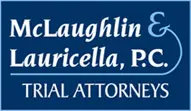It is difficult to think about how quickly an automobile accident can turn your life upside down until you experience one. Nor do people expect an accident before it occurs, so they cannot be prepared for the challenges that lie ahead. After reading this article, you will be prepared to discuss your accident with an attorney who can anticipate your issues, and help you to deal with them.
Here Are Some Simple Steps to Follow Before Talking With Your Attorney
(1) Take Pictures of Your Vehicle, the Accident Scene, and Your Injuries
A picture is worth a thousand words. Pictures of your vehicle will give your attorney an idea of any damage that was caused by the impact of the other vehicles. Pictures of the accident scene will help your attorney to understand the mechanics of the collision.
For example, you may tell your attorney that you were hit by a vehicle that was taking an improper left turn. But a picture of the scene you are describing may allow your attorney to figure out that the other driver crossed over three lanes of oncoming traffic before entering your lane of travel.
Remember to take pictures of your injuries early and often. Include close-up pictures of your wounds, bruises, or breaks. If your physical activities have been limited, take pictures or videos of yourself doing your daily routine to show those limitations as a result of the accident. To be compensated for your injuries; you must be able to document the nature and extent of your injuries. Words are limited, but pictures access the imagination.
(2) Prepare a Factual Narrative of the Events of the Accident.
Include all the details that you can remember from the accident. Be sure to include any information that you can recall about the road conditions, traffic, weather, time of day, and the date of the accident. Where were you travelling to, and where were you coming from? Did you have an appointment? How fast were you driving?
Include the names of anyone who was at the scene of the accident when it occurred. Try to remember what happened after the accident. Did you talk to anyone about the accident after it happened? Did the other driver say anything to you, or apologize to you for the accident? Remember what was said, and write it down, because it may be used to your benefit as evidence in a lawsuit.
I tell my clients to include all available facts in their narratives, even the bad ones. If you were speeding, texting, talking on the phone, changing your radio station, or coming home from the bar after a couple of drinks, you are not doing yourself any favors by hiding those facts from your attorney. Eventually, the truth will come out, and you will want your attorney to know what he/she is up against.
(3) Seek Medical Treatment for Your Injuries
If you took an ambulance from the scene of the accident to the hospital, you will have received discharge instructions upon release. Read those instructions and follow them. It is important that you seek treatment for the injuries that you have sustained. Lawyers and insurance companies think in terms of proof; you cannot be compensated for your pain and injuries if there is no paper record of you having sustained them, and being treated.




